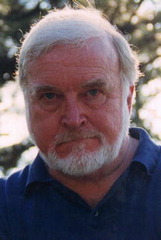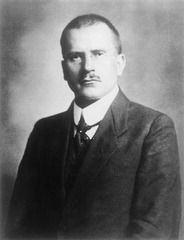Creativity. The capacity to develop new and original solutions to particular problems, new artistic or cultural expressions, or new ways of thinking. 

Views: TOPICS, Csikszentmihalyi
Anthropology. Literally, anthropology means 'the study of mankind'. It is usually divided into two quite distinct disciplines: Social (or cultural) anthropology: the study of the wide range of different cultures and social systems found across the planet. It has obvious conceptual overlaps with sociology, although the latter tended to focus on Western societies; social anthropology was initially more concerned with non-Western, so-called 'primitive' societies. (In this context, it is perhaps relevant to note Gandhi's reply when questioned as to what he thought of 'Western civilization': “I think it would be a good idea”). However, these two disciplines of sociology and social anthropology have developed quite different methodologies and theoretical approaches to understanding their subject matter. ETHNOGRAPHY [see 'methods'] is a key method used by anthropologists. Physical anthropology: a biological, evolutionary approach to measuring, classifying and analysing different human groupings (e.g. based on ethnicity, geography, or 'race' – though the latter term is now considered problematic, in perpetuating what has been called 'biological racism'). 

Views: PERSPECTIVES, Csikszentmihalyi
The Cold War (1945-1991). At its height in the 1950s, the Cold War greatly influenced not only the types of research funded for psychologists, but also the 'mindset' of a whole generation reared on fears of nuclear attack. The McCarthyite witchhunts of left-leaning intellectuals during the 1950s were mainly focused on the entertainment industry in America. However, they left a lasting legacy on the psyche of a generation, while also isolating many psychologists in the Eastern Bloc. Some psychologists, like Erikson, were interested in the Cold War and its psychological effects, per se. For others the influence of the Cold War on their choice of research agenda was perhaps more subtle. Written by: Course Team 

Own travel. Certainly, travel is more than the seeing of sights; it is a change that goes on, deep and permanent, in the ideas of living. Miriam Beard. It is often said that travel broadens the mind, but it can also influence the development of psychological theory. For instance, Darwin's travels in South America and the Galapagos Islands are closely associated with his later theory of natural selection. Similarly, William James' travels around Europe allowed him contact with a body of psychological thought (both experimental and psychodynamic) quite different from the tradition developing in the United States. Travel also suggests permanent movement from one country to another. The impact of the movement of psychologists from mainland Europe to the UK and the USA during and following the second world war is discussed in the World War II entry. However, the experience of migration in itself can provide new insights into one's own identity, cultural and social differences and can highlight how we understand ourselves as a member of a specific group or social category. For instance, in developing the information for EPoCH we asked “Has your work been influenced by any historical/cultural/social contexts”. Csikszentmihalyi replies that: Moving from one culture to another (Hungary/Italy/the United States, with many side-trips elsewhere) has been very helpful in relativizing my beliefs, while impressing on me the fundamental similarities among human beings”\n\nWetherell, in reply to the same question states: \n\nI have been influenced by my status as a migrant to Britain and growing up in an ex-colony (New Zealand). Written by: Course Team 

Motivation. This term comes from the Latin term motivus (“a moving cause”). It refers to some kind of internal 'drive' within a person that causes them to act in a particular direction, e.g. initiating a particular behaviour. Although motivation as defined here clearly refers to an internal drive, it is often inferred indirectly from observation/measurement of external behaviours (in reaction to various stimuli). 

Transpersonal Psychology. Essentially Transpersonal Psychology is attempting to make sense of experiences traditionally called 'religious' or 'spiritual' within a psychological framework, by looking at such issues as the unity of life, wisdom and love. It's not easy to find good definitions of Transpersonal Psychology that are also concise. A useful shorthand might be 'the psychology of spiritual experience' (though that begs the question as to definitions of 'spiritual'). The initial impetus behind Transpersonal Psychology 'was to bring into psychology the study of a variety of experiences not commonly examined in mainstream psychology and to develop wider conceptions of the nature of mind, consciousness, human nature, and reality than were found in behaviourist, psychoanalytic, and humanistic approaches'. (Ken Wilber). 

Adolescence refers to the period between childhood and adulthood, a time of transition. It is not the same as puberty, which refers to the physiological changes that start at around 12 or 13 years old, and ends with biological sexual maturity. Adolescence refers to the psychological and social changes that, in the West, accompany puberty. These changes are important for subsequent psychological wellbeing. Adolescence is seen as a period when someone has to leave the dependence of childhood and separate from parents. Precipitated by the sexual changes of puberty, girls and boys have to develop adult gendered identities. This process is often accompanied by conflicts around sexuality and sexual relationships. Adolescence can consequently be an intense time, characterised by conflicts with parents concerning the appropriate level of independence and strong ties with peer groups as alternative point of identification. 

Views: TOPICS, Csikszentmihalyi
Philosophy as an academic discipline can be divided into a number of central topics, such as the origins and nature of human knowledge, language, logic, ethics, aesthetics etc..Many of these topics are of great importance to psychologists. Indeed, many of the debates within psychology (e.g. concerning fundamental issues on what should be considered appropriate methodologies, what counts as valid data, the relationships between theories and evidence etc.) are not just scientific, but philosophical questions, requiring the tools of philosophical analysis for a proper treatment. Historically, psychology itself was once a branch of philosophy, called 'mental philosophy'. It became a clearly-recognised discipline in its own right only towards the end of the nineteenth century, with researchers such as Wilhelm Wundt (in Germany), and William James (in the United States). There are still important aspects of psychological issues which can (and perhaps need) to be tackled using the tools of philosophy, in that they need rational argument rather than simply engaging in further experimental/empirical research. One example of this is the study of consciousness which brings up the so-called 'mind-body problem' – the problematic relationship between mental experiences and the physical world. Although neurosciences and other disciplines can try to throw some light on important aspects of this, much of the debate actually centres round questions of rational analysis, use of language and the precise meanings of words etc., which come within the remit of philosophy. 


